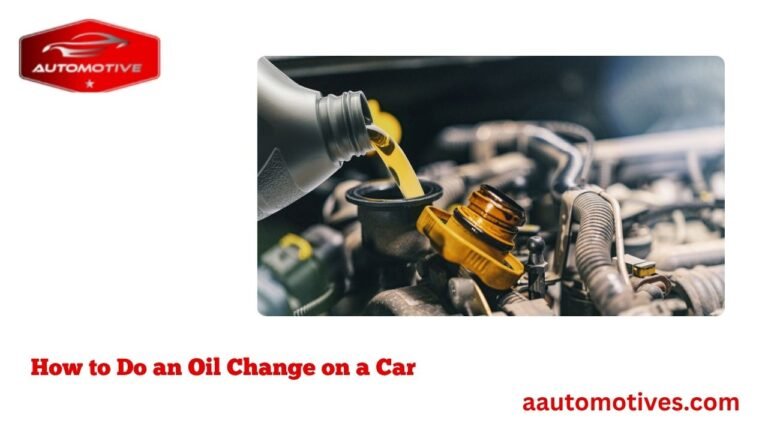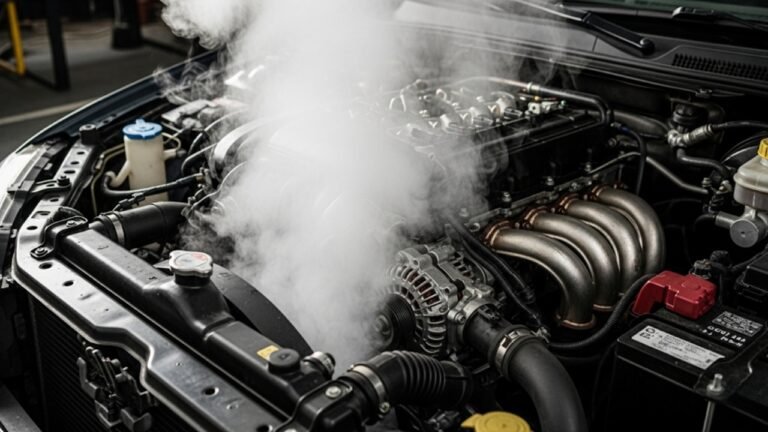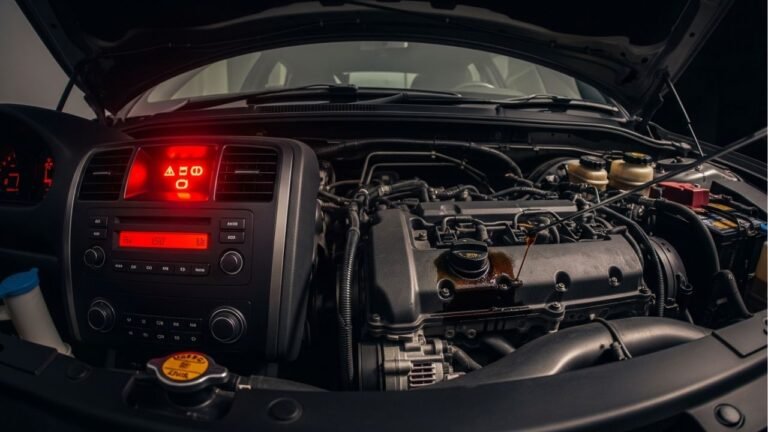7 Life-Changing Benefits of Changing Oil in Car Regularly

Keeping your car in top shape is a bit like looking after your health. You drink water, eat good food, and exercise to stay fit. In the same way, your car needs the right care to run smoothly. One of the most overlooked but essential tasks in car maintenance is changing the oil. Today, I want to share the 7 remarkable benefits of changing oil in car that go way beyond just ticking a box.
I learned this the hard way. Years ago, I used to delay oil changes, thinking it didn’t really matter. Then came a sudden engine failure during a long drive to Sylhet. The repair cost me more than I expected—and taught me a valuable lesson. Regular oil changes aren’t just about maintenance. They’re about protecting your investment, staying safe, and saving money in the long run.
Let’s look at why this simple habit can make a world of difference.
1. Prolongs Your Engine’s Life

Over time, oil becomes dirty. It collects dust, metal bits, and debris. Dirty oil turns into sludge, which sticks to engine parts and causes friction. That friction? It’s like sandpaper rubbing on steel—slowly wearing down the engine components.
When you stick to the schedule and change your oil, fresh oil flows cleanly through the engine. It keeps the parts cool and reduces metal-to-metal contact. That means less damage, less overheating, and a longer life for your car.
Imagine buying a car and making it last 15 years instead of 10. That’s possible when you change your oil consistently. It’s not just about mileage—it’s about maximizing the lifespan of your engine.
Quick Tip: Use high-quality synthetic oil if you want even better protection. It’s a bit more expensive, but trust me—it’s worth it.
2. Enhances Fuel Efficiency
This one hits home every time fuel prices go up—and let’s be honest, that happens a lot these days. What if I told you that changing oil in car could actually help you save on fuel? It’s true.
When your engine oil is old or dirty, your engine has to work harder. It’s like trying to run in deep sand. You’ll still move, but you’ll use more energy to do it. That’s exactly what happens to your engine. Dirty oil increases friction and resistance, forcing the engine to burn more fuel.
Now, imagine pouring clean oil into the engine. It’s smooth. The parts glide with ease. The engine runs more efficiently—and you get more kilometers per liter.
Here’s a little table to show how it adds up:
| Oil Condition | Engine Effort | Fuel Use | Savings Potential |
| Fresh, clean oil | Low | Low | High |
| Slightly dirty oil | Moderate | Moderate | Medium |
| Sludgy, old oil | High | High | Low |
By changing oil in car every 5,000 to 8,000 kilometers (depending on your oil type), you’ll notice better mileage. It’s one of those hidden benefits you don’t feel immediately but see over time—especially at the fuel pump.
3. Improves Engine Performance
We all love it when our car runs smooth—no weird sounds, no jerks, just pure comfort. But that smoothness isn’t automatic. It depends on how well the engine performs. And believe it or not, fresh oil plays a big part in that.
The engine is made up of hundreds of moving parts. Pistons, valves, crankshafts—they’re all doing a dance under the hood. To keep this dance smooth, you need proper lubrication. Old oil loses its viscosity—it becomes thick and gummy, like glue. That affects the timing and flow of these parts.
With new oil, everything flows better. You get quicker starts in the morning, more responsive acceleration, and less engine noise. You’ll feel the difference in your daily drive, especially during long trips or city traffic.
Once, during a trip to Chittagong, I changed the oil just before leaving. My car felt like a brand-new machine. It purred instead of growled, and I barely had to press the pedal. That’s the power of a simple oil change.
4. Reduces Harmful Emissions
We all want to breathe clean air. But not many people connect their car’s emissions to engine oil. Here’s the truth: dirty engine oil increases harmful exhaust.
Old oil doesn’t burn cleanly. It allows unburnt fuel particles, soot, and other harmful substances to mix with your exhaust. This leads to higher emissions, darker smoke, and even failed emission tests.
Changing your oil helps your engine burn fuel more efficiently. Clean oil means clean combustion. And clean combustion means less pollution.
If you’re someone who cares about the environment (and most of us do these days), then this is a major benefit. It also helps you stay compliant with vehicle emission standards, avoiding fines or rejection at the fitness inspection center.
Besides, who doesn’t like driving a car that leaves behind clean air instead of thick smoke?
5. Prevents Engine Overheating
Have you ever seen steam rising from someone’s car on a hot day? That’s a sign of engine overheating. It’s scary and expensive. And surprisingly, it’s often caused by neglecting the oil change.
Engine oil does more than just lubricate—it helps to regulate engine temperature. As the oil gets old and dirty, it loses its ability to carry heat away. Your engine starts running hotter than normal, which puts it at risk.
Changing oil on time means your engine stays cooler. Especially in Bangladesh’s heat, where summer temperatures can hit 40°C, this makes a big difference. I’ve been stuck on Dhaka’s flyovers with a hot engine once. Since then, I never skip an oil change.
Tip: If you drive often in traffic or hot weather, change your oil a little earlier than the standard schedule.
6. Protects Other Engine Parts
When you think about changing oil in car, you’re not just protecting the engine itself—you’re protecting everything connected to it. That includes the turbocharger, pistons, crankshaft, camshaft, and more.
These parts rely on oil to stay clean and well-lubricated. Without proper oil circulation, sludge and dirt start forming inside these areas. This can lead to clogged oil passages, low pressure, and eventually, full-on failure.
By keeping your oil fresh, you help protect these vital components. It’s like wearing sunscreen—not just to avoid sunburn, but to protect your skin underneath. Fresh oil forms a barrier that shields metal parts from rust, corrosion, and heat damage.
And let’s be real—replacing engine parts isn’t cheap. Why not spend a little on oil now, instead of spending a lot on repairs later?
7. Boosts Resale Value of Your Car
One thing many people forget is how regular maintenance affects the resale value of a vehicle. Buyers these days are smart. They look at service records, engine condition, and how well a car has been taken care of.
When you’ve regularly changed your oil, the engine sounds better, runs smoother, and passes inspections easily. That gives the buyer confidence. And when buyers trust your car, they pay more.
I once sold my old Toyota to a friend of a friend. He checked the oil history, heard the engine hum, and bought it on the spot—for a better price than I expected. All because I had taken care of the basics, like oil changes.
You might not think about resale when you’re just driving to work or picking up groceries. But when the time comes, this simple habit can pay off big time.
The Cost of Neglecting Oil Changes
It’s easy to ignore small maintenance tasks—until they become big problems. Not changing your car’s oil is like skipping dental checkups. You won’t notice the damage right away, but over time, the pain (and cost) becomes hard to ignore.
Neglecting oil changes leads to sludge buildup, overheating, friction damage, and sometimes, a seized engine. Once, my cousin delayed an oil change for over a year. Eventually, his car stalled in the middle of the Dhaka-Mymensingh highway. The engine repair cost him more than half the car’s resale value.
And it wasn’t just about the money—it was the stress, the delay, the heat, and the feeling of helplessness that made it worse. Regularly changing oil is a small price to pay to avoid such breakdowns, expenses, and regrets.
Key takeaway: Small habits now can prevent big disasters later.
How Often Should You Change Oil?
Now, let’s answer a common question: how often should you change your car’s oil? The answer depends on your vehicle, the type of oil, and how you drive.
Here’s a simple guide:
| Vehicle Type | Oil Type | Recommended Interval |
| Regular commuter car | Conventional oil | Every 5,000–7,000 km |
| Performance car | Synthetic oil | Every 8,000–10,000 km |
| Old or high-mileage car | High-mileage oil | Every 4,000–6,000 km |
| City traffic drivers | Any type | Change more frequently |
If you mostly drive in stop-and-go traffic, like in Dhaka or Chittagong, your engine works harder and heats up faster. That means your oil breaks down quicker. In that case, change it a little sooner than the manual suggests.
A good tip is to check the oil color and level every month. If it’s black and thick or smells burnt, it’s time.
Also, follow your car manual. It’s the best source for your car’s specific needs.
Signs That You Need an Oil Change
Not sure if your oil needs changing? Here are a few signs your car might be trying to tell you something:
- Check engine or oil light is on
- Strange engine noises like knocking or ticking
- Rough or sluggish performance
- Oil looks dark and gritty when you check the dipstick
- Visible smoke from the exhaust
- Poor fuel economy
- Engine feels hot even on short trips
These are warning signs. Ignoring them can cause bigger problems down the road.
If your car could speak, it would say: “Please, just give me some fresh oil!”
Oil Change: DIY or Mechanic?
You might be wondering—should I change the oil myself or take it to a shop?
Doing it yourself is possible, especially if you have the tools, space, and some confidence. It saves money too. But there’s a catch: you must know your car’s oil type, oil filter, and drain plug location. And you need to dispose of the old oil responsibly.
On the other hand, a professional mechanic will do it fast, clean, and correctly. They’ll also check other things like air filters, tire pressure, and brake fluids during the service. It might cost a bit more, but for many people, the peace of mind is worth it.
If you’re a beginner, start by learning how to check oil. Once you’re confident, try doing it yourself under guidance. For most people, though, getting it done at a trusted garage is the safer route.
Real-World Benefits You’ll Feel
Changing oil isn’t just about theory or mechanics—it’s about how your car feels on the road. Every time I change my oil, I notice:
- Smoother acceleration
- Quieter engine noise
- Better mileage
- Less stress on long drives
- A comforting sense of responsibility
It’s like the difference between wearing worn-out shoes versus new ones. The ride becomes more comfortable, more confident. You feel the difference in traffic, on highways, and especially on rough roads.
And emotionally? You feel more connected to your car—like you’re actually taking care of it, not just using it.
Final Thoughts: A Small Habit With Big Rewards
Let’s go back to where we started. The benefits of changing oil in car (7) may sound technical at first—but they’re really about your everyday life. Your safety. Your wallet. Your peace of mind.
Here’s what you get from a simple, regular oil change:
- A longer engine life
- Better mileage
- Smooth, quiet rides
- Lower emissions
- Less heat and stress on the engine
- Protection for valuable parts
- Higher resale value
That’s a powerful list, especially for something that only takes about 20–30 minutes and a small investment every few months.
If you take away one thing from this article, let it be this: Changing your car’s oil is one of the smartest and simplest ways to care for your vehicle. It’s not just maintenance—it’s love, protection, and long-term thinking.
So, next time you hear someone say, “It’s just an oil change,” you’ll know better.






